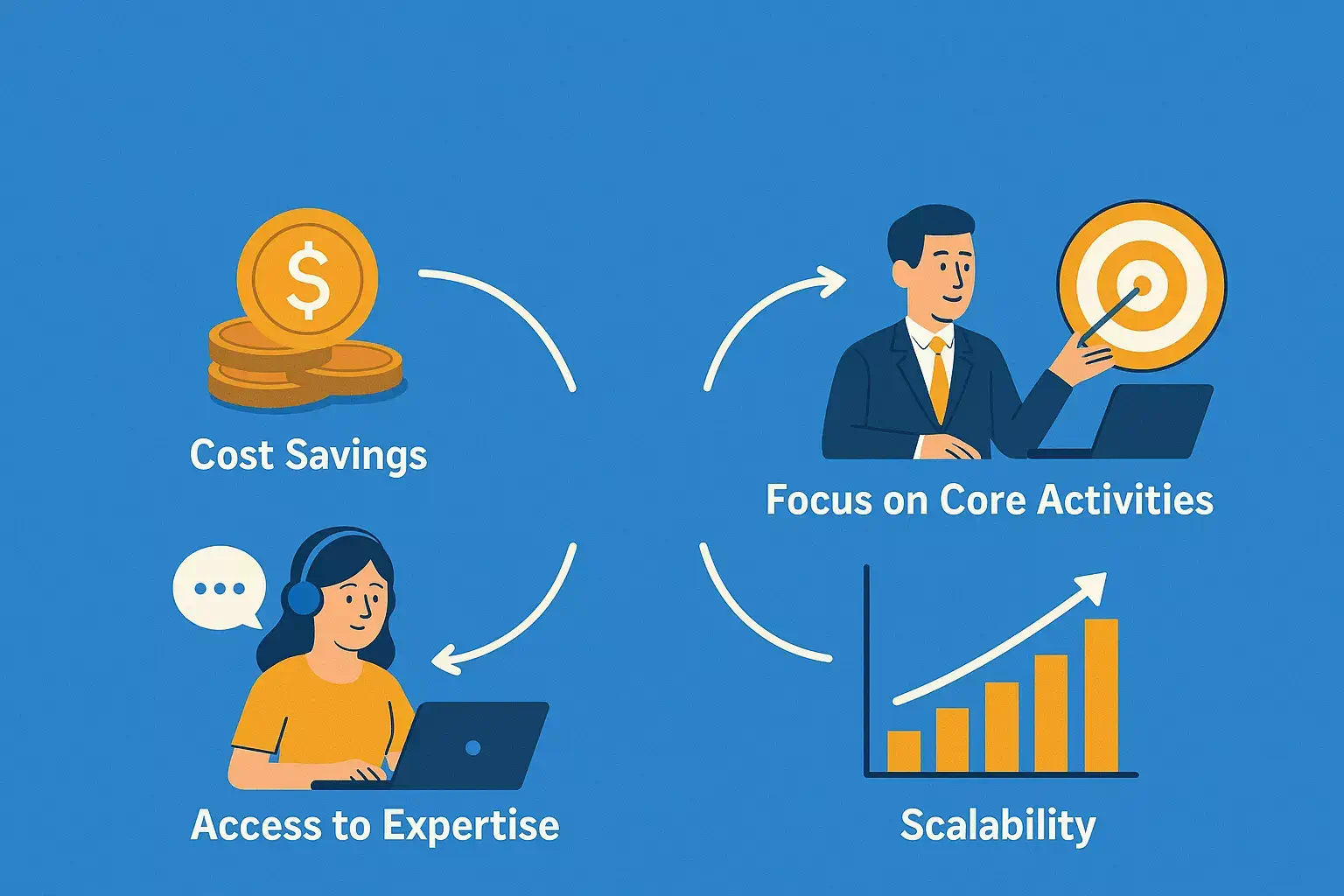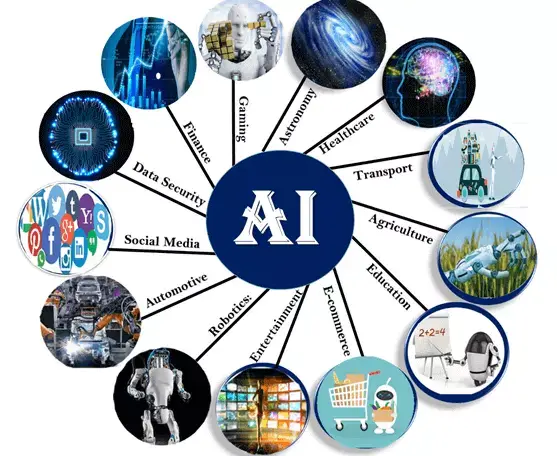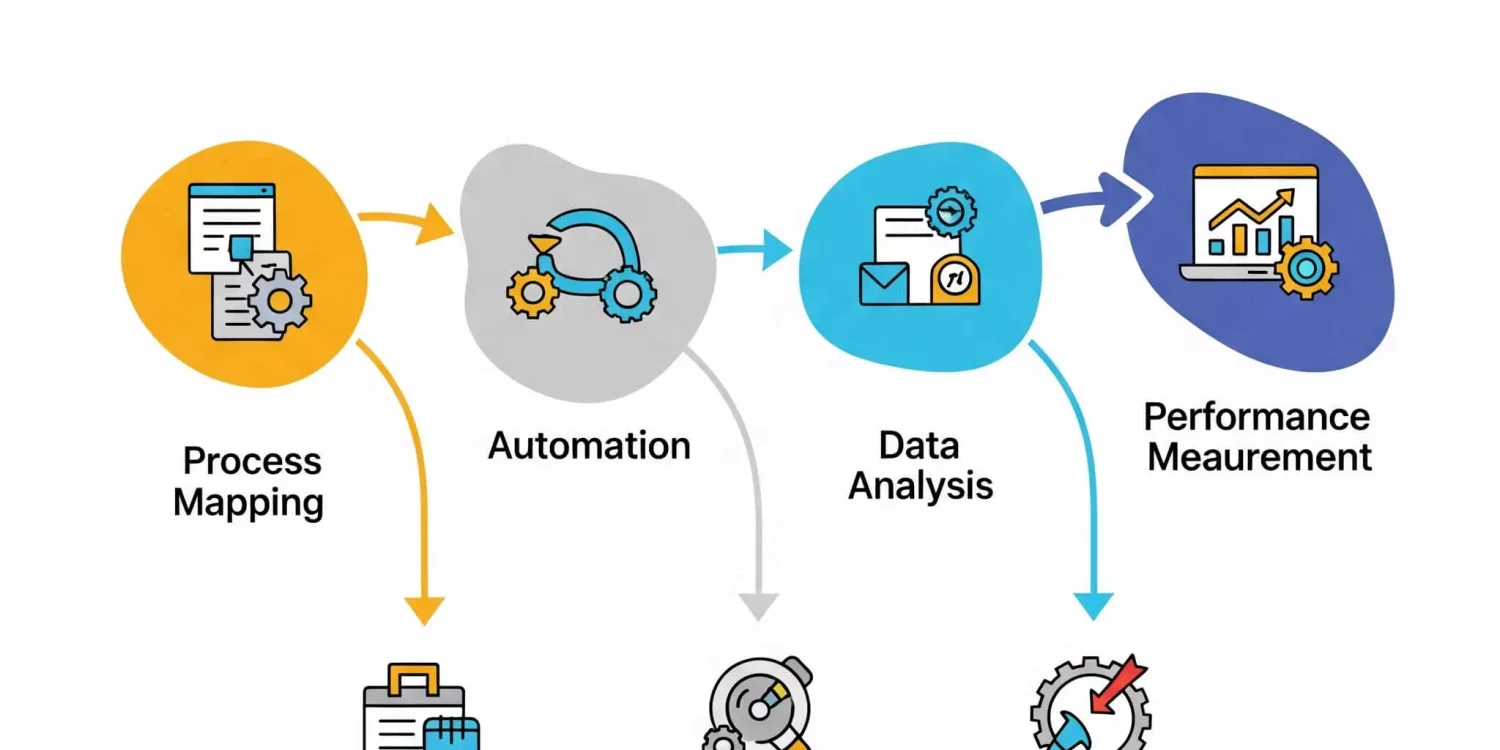The Role of Technology in Building Resilient Business Models
In a world shaped by constant change, one force stands at the center of evolution, technology. Across the globe, organizations are rethinking the way they operate, communicate, and compete. Technology is no longer a back-office enabler but the heartbeat of innovation, productivity, and expansion. It empowers leaders to go beyond the limits of geography, automate complexity, and turn data into strategy.
This transformation is more than digital, it is structural. It impacts entire industries, reshaping traditional business models and opening doors to new opportunities. For companies willing to embrace this shift, the rewards are significant. Technology enables faster decision-making, reduces operational friction, and enhances customer experience. It allows businesses to be leaner, smarter, and more resilient in a volatile marketplace.
At the forefront of this change are organizations like BPOManila, which exemplify how technology-driven services are reshaping the way industries grow and scale. Their journey is one of adaptation and proactive innovation, proof that the future belongs to those who embrace technology not just as a tool but as a long-term strategy.
How Systems Architecture Strengthens Enterprise Efficiency
The digital economy demands more than a functioning IT system. It requires intelligent infrastructure, one that integrates seamlessly, adapts swiftly, and scales effortlessly. Enterprises of all sizes are moving toward cloud-native platforms that support real-time collaboration, automate workflows, and enable continuous delivery.
With cloud architecture, businesses achieve agility. They can deploy updates in minutes, integrate third-party tools, and adapt to market changes without extensive hardware investment. This flexibility allows startups to compete with large corporations, and legacy businesses to modernize without losing momentum.
Automation is another critical pillar. Robotic Process Automation, artificial intelligence, and machine learning are transforming how organizations manage data, respond to customers, and execute core functions. What once took hours of manual input can now be completed in seconds with precision. From invoice reconciliation to customer service chatbots, these tools streamline efficiency and free up human capital for innovation.
These technologies support intelligent operations, systems that learn, anticipate, and improve. They allow companies to reduce human error, predict demand, and deliver a superior end-user experience. As competition intensifies across industries, those equipped with intelligent infrastructure gain a decisive edge.
Technology’s Cross-Sector Impact on Operations
Technology’s most powerful attribute is its versatility. It is not confined to one sector but transforms every industry it touches. From retail to healthcare, logistics to financial services, businesses are experiencing the tangible benefits of digital transformation.
In retail, personalized experiences are now expected. Through predictive analytics and machine learning, brands can understand consumer behavior, tailor offers, and optimize inventory with uncanny accuracy. Mobile apps, voice assistants, and virtual try-ons are redefining how consumers interact with products and make decisions.
Healthcare systems are shifting from reactive care to proactive wellness. Digital platforms support telemedicine, remote diagnostics, and real-time health tracking. Providers access unified health records, Ai supports diagnostic accuracy, and patients benefit from more accessible and personalized care. Technology improves outcomes, reduces overhead, and bridges the gap between provider and patient.
In financial services, security and speed are essential. Fintech platforms enable real-time payments, blockchain enhances transparency, and Ai helps detect fraud before it happens. These systems build consumer trust and drive innovation in lending, insurance, and wealth management.
For logistics and transportation, technology provides visibility and control. Real-time GPS tracking, demand forecasting, and digital warehousing reduce delays and improve efficiency. Businesses optimize routes, reduce emissions, and deliver on time, every time.
The beauty of this digital renaissance is its universality. Regardless of industry, the right technology stack enhances capabilities, reduces waste, and delivers measurable ROI.
Customer Experience and Platform Strategy
The evolution from providing services to delivering experiences marks a fundamental shift in modern business. Today’s customers want more than fulfillment, they want connection, convenience, and value. Technology is the bridge between operational efficiency and emotional engagement.
User experience design ensures that digital platforms are intuitive, inclusive, and impactful. Whether it’s a customer portal, mobile application, or eCommerce interface, the layout, responsiveness, and performance matter. A positive digital experience leads to higher retention, better reviews, and increased revenue.
Through customer journey mapping and behavioral analytics, businesses understand what users want and when. This insight allows for personalized communication, predictive offers, and a smoother overall journey.
Voice technology, augmented reality, and AI-powered recommendations are just the beginning. As customer expectations grow, so too must the sophistication of digital experiences. Forward-thinking organizations build around these expectations, not as an afterthought but as a core strategy.
Remote Connectivity and Enterprise Cohesion
The definition of work has changed. Offices are now optional. Teams are global. Collaboration is continuous. These changes are not just temporary, they signal a permanent shift in how companies engage talent, deliver services, and maintain productivity.
Technology enables distributed workforces to operate with cohesion. Cloud-based collaboration tools, digital project trackers, and video conferencing systems allow teams to function as seamlessly as if they were in the same room. This access to global talent opens new possibilities for businesses that were previously bound by location or physical resources.
Cybersecurity plays a critical role in this model. As networks become more decentralized, protecting digital assets is paramount. Companies must ensure secure access, encrypted communication, and proactive monitoring across all endpoints.
Training and development have also evolved. Learning management systems, virtual simulations, and gamified education platforms help employees stay up-to-date with the latest tools and regulations. Continuous learning becomes part of the culture, helping businesses remain competitive in fast-changing industries.
This model is particularly relevant in the outsourcing sector. Organizations like BPOManila demonstrate how remote service delivery, powered by secure and scalable systems, can maintain the highest levels of quality and accountability.
Insight Frameworks for Market Positioning
Data is more than numbers. It is the story of your business, your customers, and your future. Organizations that learn to capture, organize, and interpret data can make informed decisions, predict challenges, and act ahead of competitors.
Big data platforms and analytics tools allow businesses to harness information from multiple sources, customer behavior, social media, operational performance, and more. These insights drive product development, marketing strategies, and process improvements.
Real-time dashboards make complex information understandable. Executives can track KPIs, identify risks, and respond with agility. Predictive models help organizations prepare for future events, from inventory shortfalls to market shifts.
But with great data comes great responsibility. Ethical handling of personal and organizational information is essential. Data governance, access controls, and transparency policies protect not only users but also corporate reputation.
Organizations that integrate data into their decision-making processes are not just reactive, they are strategic. They can launch products faster, serve customers better, and grow sustainably.
Technology Integration and Environmental Impact
Sustainability is no longer a branding tactic. It is a business imperative. Technology offers pathways to reduce waste, lower emissions, and operate responsibly while increasing efficiency and reducing cost.
Digital twins allow companies to simulate changes before implementing them, avoiding unnecessary material waste. Smart sensors help monitor energy usage, optimize lighting and temperature, and predict maintenance needs.
Cloud computing reduces the carbon footprint of data storage. Remote collaboration cuts down on travel emissions. Sustainable procurement systems ensure vendors adhere to environmental and ethical standards.
Sustainable tech practices align businesses with the values of today’s consumers. They also deliver long-term cost benefits and compliance with evolving regulations. Businesses that integrate sustainability into their technology strategies are building a legacy of responsibility.
Shifting the Pace of Change With Scalable Frameworks
Speed is a differentiator. In a world where markets shift overnight, the ability to respond quickly is critical. Agile organizations use technology not just to function but to thrive.
Agility is supported by modular platforms, cross-functional teams, and rapid deployment frameworks. Instead of long development cycles, businesses release iterative improvements that keep them relevant and responsive.
This model supports experimentation. Businesses can test new ideas, gather feedback, and pivot without major risk. It encourages innovation from within, giving employees the tools to propose and implement change.
Cloud-native development, containerization, and microservices are all part of this agile approach. They allow organizations to build, break, and rebuild faster than traditional models ever allowed.
Organizations that adopt agility as a mindset rather than a method are better prepared for disruption, whether economic, political, or technological.
Reinforcing Collaboration With Digital Infrastructure
In a connected world, success is rarely achieved in isolation. The most impactful businesses form strategic partnerships to extend their reach and amplify their impact. Technology serves as the infrastructure that enables these alliances.
Shared platforms, open APIs, and secure communication channels make collaboration easy, even across continents. Businesses can co-create products, share data, and coordinate campaigns with trusted partners.
This spirit of collaboration extends to clients as well. Organizations that treat clients as collaborators, not just consumers, build stronger relationships and achieve better outcomes. Joint planning sessions, shared innovation labs, and feedback-driven design all create a culture of mutual success.
Technology facilitates transparency and accountability. Project dashboards, performance reports, and real-time communication ensure that every stakeholder is informed and aligned.
This is where BPOManila excels. As a provider of technology-enabled services, it helps clients across sectors build not just capabilities, but confidence. Its partnership model is rooted in shared growth and strategic innovation.
Start the Conversation That Leads to Transformation
Every organization, no matter its size or sector, has untapped potential. Technology is the key to unlocking that potential. It is not about adopting every new tool or trend. It is about choosing the right solutions, applying them with purpose, and evolving continuously.
BPOManila is ready to help you explore what is possible. With deep industry knowledge, technical excellence, and a collaborative mindset, the team delivers solutions that are built for growth.
Whether you are modernizing existing systems, launching new products, or scaling globally, BPOManila can be your partner in transformation.
Let’s build something extraordinary together. Visit our site and contact us to start your journey.













